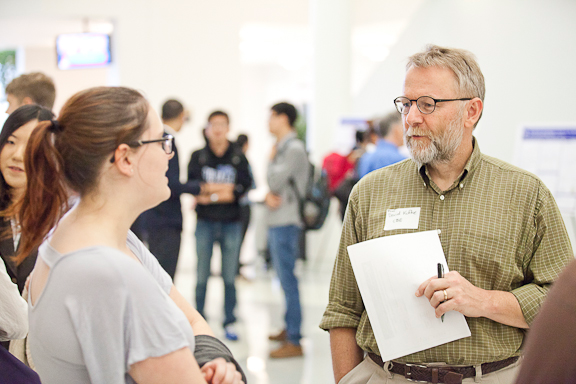
In this series, ChEnected introduces readers to the recipients of AIChE’s 2025 Institute and Board of Directors’ Awards. These high honorees are nominated by the chemical engineering community and voted upon by the members of AIChE’s Awards Committee.
The William H. Walker Award for Excellence in Contributions to Chemical Engineering Literature is named for William Hultz Walker (1869–1934), a founder of the chemical engineering discipline who in 1916 established the School of Chemical Engineering Practice at the Massachusetts Institute of Technology. The Walker Award is given to a member of AIChE who has made outstanding contributions to the field’s literature. The award is sponsored by John Wiley & Sons.

The recipient of the 2025 Walker Award is David A. Kofke, SUNY Distinguished Professor of Chemical and Biological Engineering at the University at Buffalo.
Dr. Kofke is being recognized “for seminal, innovative contributions to the foundations of molecular thermodynamics and simulation that have transformed the computation of thermophysical properties important to chemical engineering applications.” He and the other Institute and Board of Directors’ Award recipients were honored at the 2025 AIChE Annual Meeting.
About David Kofke and his work
For more than three decades, David Kofke has advanced the science of molecular modeling and simulation, establishing new methods that have become cornerstones of chemical engineering literature and practice. His research has transformed how engineers calculate and predict thermophysical properties from first principles, linking molecular-level theory to macroscopic engineering applications.
Kofke’s early work introduced methods that are now essential tools in statistical thermodynamics and molecular simulation. His development of the semi-grand ensemble Monte Carlo method provided a reliable approach for modeling mixtures at high densities, while his Gibbs–Duhem integration technique opened the door to directly computing phase equilibria in complex systems. These innovations are widely used to study phase boundaries and free energies for fluids and solids and have become standard practice across molecular simulation research.
Kofke has also redefined how scientists calculate virial coefficients — parameters that connect molecular interactions to macroscopic equations of state. His methods allow researchers to compute these coefficients from first principles with extraordinary accuracy, achieving agreement that surpasses the precision of experimental measurements. These advances have enabled the first fully ab initio evaluation of a substance’s equation of state, linking quantum-level calculations to engineering data for applications in metrology and materials design.

Most recently, Kofke and his students introduced mapped averaging, a method that has dramatically increased the speed and precision of molecular simulations for crystalline solids. By separating harmonic and anharmonic contributions to a crystal’s free energy, this approach achieves accuracies that were previously unattainable and enables fast, noise-free calculations of properties such as heat capacity and compressibility. The technique has been implemented in widely used simulation software including LAMMPS and VASP and is already influencing theoretical treatments of crystals.
Colleagues describe Kofke as a researcher whose work “reverberates throughout the chemical engineering community,” not only through his own publications but through the countless others made possible by his methods.
His ability to combine rigorous theory with computational innovation has made him a driving force in molecular thermodynamics and a mentor to many who have carried his ideas forward.
Dr. Kofke is a Fellow of AIChE and AAAS and has received numerous honors, including the AIChE David Himmelblau Award for Innovations in Computer-Based Chemical Engineering Education, the John M. Prausnitz Award in Applied Chemical Thermodynamics, and the SUNY Chancellor’s Award for Excellence in Research and Creative Activity. He is also a SUNY Distinguished Professor and Associate Editor of the Journal of Chemical & Engineering Data.
ChEnected has created this series to profile all the 2025 Institute and Board of Directors’ Award recipients.







